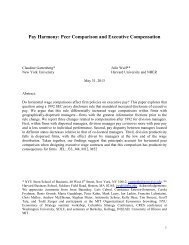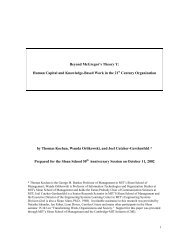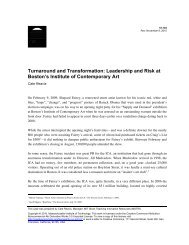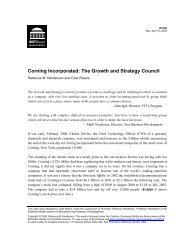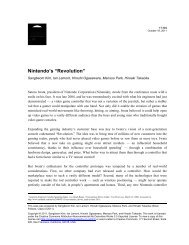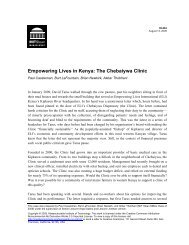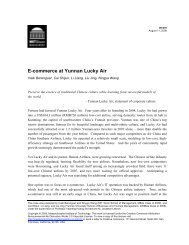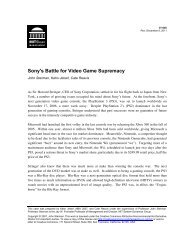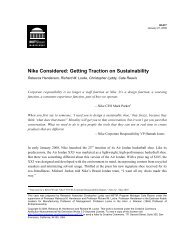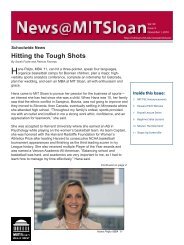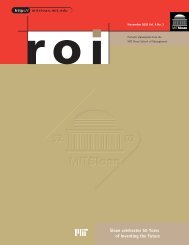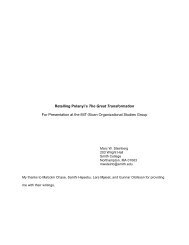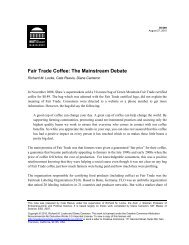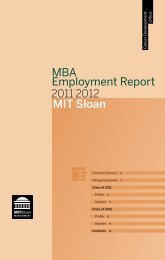Understanding earnings quality - MIT Sloan School of Management
Understanding earnings quality - MIT Sloan School of Management
Understanding earnings quality - MIT Sloan School of Management
Create successful ePaper yourself
Turn your PDF publications into a flip-book with our unique Google optimized e-Paper software.
Xie (2001) uses the Jones model (discussed later in this section) to decompose accruals into a<br />
normal and abnormal component. The abnormal component is likely to contain more measurement<br />
error and managerial discretion. He finds the persistence parameters on cash flows, normal accruals,<br />
and discretionary accruals are 0.73, 0.7, and 0.57. This result indicates that discretionary accruals<br />
are less persistent than either normal accruals or cash flows, consistent with reliability and<br />
measurement issue concerns. Richardson et al. (2005) develop a model <strong>of</strong> reliability and argue that<br />
operating assets and liabilities are less reliably measured than financial assets and liabilities.<br />
Consistent with their predictions, they find that working capital (operating) accruals have the lowest<br />
reliability, accruals related to financial assets and liability have the highest, and long-term operating<br />
accruals are in the middle. Broadly speaking, they find a positive relation between their ex ante<br />
reliability rankings and return on assets.<br />
Internal control violations under the Sarbanes Oxley act are suggestive <strong>of</strong> measurement error<br />
and problems with the accounting system. Doyle, Ge, and McVay (2007a) find that firms that<br />
disclose they have at least one material weakness during the 2002-2005 period, have less persistent<br />
<strong>earnings</strong>. Finally, Wang (2006) finds a positive association between founding family ownership and<br />
proxies for accrual <strong>quality</strong> and <strong>earnings</strong> persistence.<br />
3.1.1.4 Consequences <strong>of</strong> persistence<br />
The vast majority <strong>of</strong> papers on consequences <strong>of</strong> persistence examine equity market<br />
consequences. A few papers discuss consequences that we refer to collectively as other-than-equity-<br />
market consequences.<br />
Equity market consequences: Researchers hypothesize two distinct equity market consequences <strong>of</strong><br />
persistence. The first prediction is that more persistent <strong>earnings</strong> will yield a higher equity market<br />
34



